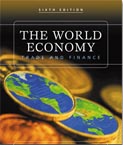Serbia and IMF agree 516-million-dollar standby deal
 Belgrade - Serbia's ruling coalition overcame internal strife over where to cut spending and has agreed on a 15-month, 520- million dollar standby credit with the International Monetary Fund (IMF), Finance MInister Diana Dragutinovic said Friday.
Belgrade - Serbia's ruling coalition overcame internal strife over where to cut spending and has agreed on a 15-month, 520- million dollar standby credit with the International Monetary Fund (IMF), Finance MInister Diana Dragutinovic said Friday.
Within the deal, Serbia must cut spending to keep the 2009 budget deficit under 1.5 per cent of the gross domestic product and the annual inflation rate at 8 per cent.
A standby credit means that through March 2010 Serbia may draw the funds if its macroeconomic stability becomes jeopardized.
Belgrade and IMF reached the deal after tree weeks of hard bargaining, most of it within Prime Minister Mirko Cvetkovic's ruling coalition.
Last-minute haggling between the partners even forced Cvetkovic, who has a razor-thin, volatile majority in parliament, to delay the regular meeting of his cabinet from Thursday to Friday.
In the end, the smallest partner in the ruling alliance, the pensioners party PUPS, wrangled a concession to keep a 10-per cent increase of pensions that it promised its voters ahead of May polls.
To compensate, Cvetkovic was forced to agree to a freeze in public sector salaries starting immediately and lasting until at least October 2009 - which may lead to protests and strikes.
During the three weeks of economic policy reviews and negotiations, IMF experts warned that Serbia - under growing pressure of its swollen current account deficit, declining investments and increasingly expensive credits - simply must reduce spending.
Also facing a slight economic slowdown, Belgrade must cut the deficit on its account from the current nearly one-fifth of GDP by saving money, instead of borrowing or from investments, experts said.
While securing funds for a possible emergency, the arrangement with the IMF is even more important as a signal of a prudent economic policy to potential investors and creditors.
Owing to the central bank's restrictive policies, Serbia so far remained shielded against the worst of the global financial crisis.
That is however not enough, as gaping deficits started affecting the stability of its currency, which fell to a two-and-a-half year low against the euro last week, forcing the central bank to intervene with its precious foreign exchange reserves. (dpa)